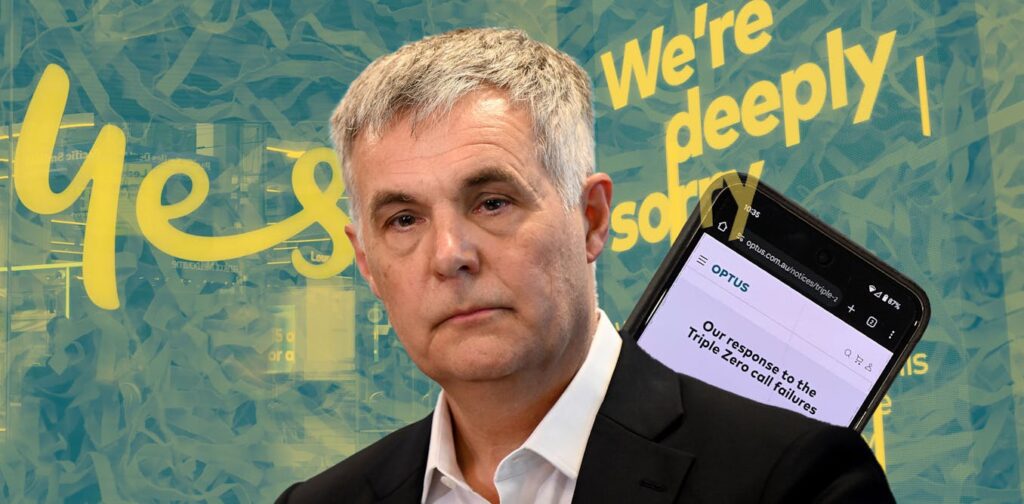
Optus finds itself in a perilous situation once again. Last week’s 13-hour Triple Zero network outage left about 480 customers unable to call for emergency help, with three deaths linked to the outage currently under investigation. This incident compounds the telecommunications giant’s woes, following a Federal Court ruling this week imposing a A$100 million penalty for “unconscionable conduct” involving predatory sales tactics toward vulnerable customers.
These crises are not isolated. They follow a 2022 data breach and a 2023 major network outage, which also affected emergency call capabilities. Despite Optus’s vow to prevent such occurrences, these repeated failures signal deep-seated issues within the company. As its chief executive, Stephen Rue, was repeatedly asked this week: how can Optus regain customers’ trust?
Building Trust Before the Crisis
To safeguard a brand against potential crises, companies should proactively build a reservoir of goodwill with their customers and the wider public. Engaging consumers through genuine corporate social responsibility can create a protective halo around a brand during challenging times. Optus, for decades, cultivated a strong identity as a trusted, community-focused brand. Its long-running “Yes” tagline has been central to shaping an approachable and people-centered image, making it more than a faceless utilities provider.
Optus has embedded its brand into Australia’s cultural life through sponsorship of major sporting events, from the Australian Open tennis to the naming rights to Perth’s Optus Stadium. However, this image has eroded over recent years. A 2022 data hack deemed “preventable” leaked 9.5 million consumers’ private information. In 2024, Optus was labeled the most distrusted brand in Australia, according to Roy Morgan, though it showed some improvement in 2025, moving to the fourth most distrusted brand – prior to the latest outage.
The recurrence of crises for Optus dismantles the accumulated brand image and intensifies negative responses from stakeholders. The announcement comes as a critical moment for the company to reflect on its strategies and public perception.
How to Respond During a Crisis
Effective crisis management depends on the nature of the crisis itself, meaning there is no one-size-fits-all strategy. In Optus’s case, the failure to deliver on its core service – reliable telecommunications – has had severe repercussions. Previously, Optus has proudly shared stories of keeping “the community connected” and providing “the backing of a strong network.”
Yet, these recent events undermine those claims and highlight deficiencies that are difficult to recover from, especially given the severe consequences for some customers. So far, Optus’ crisis response has shown an understanding of the importance of owning accountability and expressing remorse. However, questions remain about why it took Singapore-based parent company Singtel nearly a week to issue its own “deeply sorry” statement.
Taking responsibility is only the first step. It requires a real commitment to change and action to prevent recurrence. Optus has announced an independent review, promising transparency, but as governance expert Helen Bird noted, similar promises were made after the November 2023 Triple Zero outage, without follow-through.
“Even if it’s different this time, with experienced business and government leader Kerry Schott conducting the new investigation, Optus still needs to follow through with clear actions and real evidence of change.”
How Can Optus Start to Rebuild?
Brands can take many years to recover from major crises. The ongoing nature of crises at Optus makes that road to recovery even more challenging. Yet, if Optus and its parent company Singtel are committed, there are several actions they can pursue. For Optus, transparency in action will be critical.
Optus needs to demonstrate not just accountability for failure but also corrective action for resolution. While it cannot undo the consequences of past missteps, the company can strive to avoid repeating those mistakes. As others have pointed out, there are measurable ways to judge Optus’ ongoing response, which could involve the federal communications minister imposing new conditions on Optus’ license to operate.
Beyond immediate investigations and responses to the latest Triple Zero outage, Optus could reinvest in winning back public goodwill, potentially exploring opportunities to donate and support emergency services and local communities. Importantly, these cannot be simple, short-term fixes but must involve long-term commitments.
Through frequent, public progress updates and evidence of investment in actions leading to substantiated outcomes, Optus may begin to rebuild some of the damage done to Australians’ trust, particularly its customers’. The move represents a significant challenge for the company, but with strategic efforts, it could gradually restore its standing.







